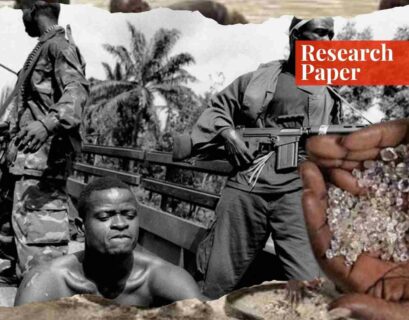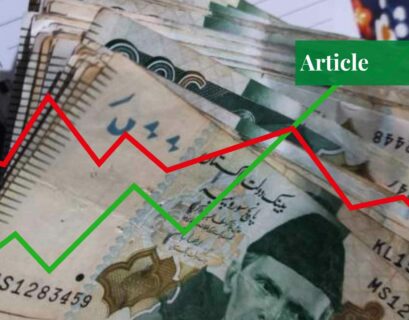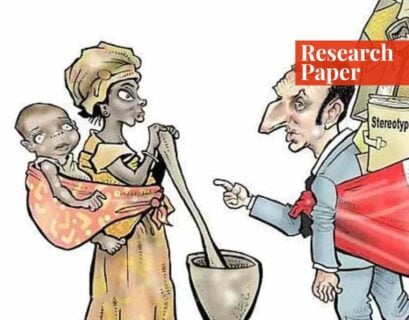Ayesha Waseem is a student of Peace & Conflict Studies at National Defence University, Islamabad.
Unrest in Sudan
On October 25, 2021, a major political transition started happening in Sudan. As a result, Sudan witnessed a shift from shared democracy to a military coup led by General Abdel Fattah al-Burhan. This was followed by the arrest of Prime Minister Abdalla Hamdok along with his cabinet ministers, with whom the military had agreed to share power until the scheduled elections for July 2022.
Consequently, a state of emergency was declared and the Joint Committee of Sovereign Council was dissolved in October. Moreover, the elections scheduled for July 2022 have been postponed to July 2023. Subsequently, mass protests erupted in the country, causing a huge number of casualties. The protests happening in Sudan left 79 dead and more than 2,000 people injured. However, the figure is still staggering.
Moreover, amidst the unrest in the country, the US has suspended $700 million in financial assistance to Sudan and the country is also barred from participating in the activities of the African Union (AU) until the situation returns to normalcy. The funding by World Bank has also been postponed temporarily.
A Country Riddled with Coups
Sudan, like many other African countries, has faced major political instability and experienced sixteen attempted coups—out of which five were successful—since its independence in 1956. Since 1989, Sudan was under the authoritarian rule of Omar al-Bashir until he was ousted in a military coup in 2019. This was the start of an era of democratization, with the formation of the Committee of Sovereign Council (SC).

The Sovereign Council was an amalgamation of the Transitional Military Council (TMC) and the Forces of Freedom and Change (FFC)—led by Prime Minister Hamdok along with his cabinet members. The members of the FCC had agreed to share power in the transitional government until the elections in July 2022. However, the military and the civilian leaders were unable to align their objectives, as both struggled to reach a power-sharing structure.
The Interim Setup & Abdalla Hamdok
Following the unrest and turmoil happening in Sudan, there was a huge condemnation and pressure by the international community over the military rule to resolve the situation. As a result, the military signed a deal with Abdalla Hamdok in November 2021, reinstating him as the interim prime minister tasked to form a new technocratic cabinet.
Whereas, General Al-Burhan appointed himself as the chairman of the new transitional Sovereign Council. However, despite the formation of the interim setup, mass protests continued to take place against the government as many believed that the setup was allowing the military to continue interfering in the affairs of the government, as it had done in the past.
Moreover, on 2nd January 2022, the acting prime minister, Abdalla Hamdok, also stepped down after his efforts to reach a compromise between the military and the pro-democracy movement failed. Therefore, he was unable to persuade the military to adhere to their commitments, particularly in giving him a free hand to appoint a new cabinet.
What was happening in Sudan worsened after Prime Minister Hamdok’s resignation and the turmoil led to the dissolution of the interim setup. Protestors continue to demand an entirely civilian government as the coup has upended Sudan’s transition to democratic rule after three decades of repression and international isolation under autocratic President Omar al-Bashir.
Moreover, after Hamdok’s resignation, the UN has offered to facilitate talks for an inclusive dialogue to address the unresolved issues for the transitional period and to deal with the constitutional reform process at large.
Contesting Opinions
There are mixed views regarding the causes of the military takeover, and both the military and the civilian leadership have diverging views. According to General Al-Burhan, a state of emergency was declared because the political infighting was stalling progress on establishing crucial institutions. He mentioned that the army stepped in to avoid civil war in the country.
On the other hand, the civilians are of the view that elections scheduled for July 2022, would have created a sense of insecurity among the military leadership of the country. The civilians might have demanded to hand over the former president, Omar al-Bashir, to the International Criminal Court for the Darfur conflict charges, in which, General Al-Burhan is also among the accused. Similarly, the investigation into the military’s role in the Khartoum massacre is also considered to be one of the reasons for the takeover.
Ground Reality
The military rule in Sudan has intensified the socio-economic and political challenges in the country, leading to further instability along with the growing outrage and protests. Despite the growing power of the military and the protests happening in Sudan, General Al-Burhan is trying to project a sense of normalcy to convince the world and the citizens of Sudan that the transition is taking place smoothly.
While on the other hand, the ground situation is different; internet access has been restricted, and doctors have refused to work at the hospitals and institutions under military rule, except in emergencies, as since the takeover there have been fifteen attacks on health care workers.
Army and paramilitary troops have been deployed across the country and are reported to have arrested protestors from their houses. The Sudanese security agents have arrested two leading figures including the former minister from the opposition—the Forces of Freedom and Change (FFC).
Khartoum’s airport is also closed, resulting in the suspension of international flights. Additionally, the security forces have been reported to have sexually assaulted the demonstrators in Khartoum – the capital of Sudan. Moreover, the use of coercive power, followed by mass arrests, has tried to intimidate the population.
Way Forward
The resignation of Abdalla Hamdok and the subsequent dissolution of the interim setup has created uncertainty and further deepened mistrust between the military and civilian circles. Considering Sudan’s fragile political history, it would be prudent for both sides to take up the UN’s offer of inclusive dialogue. As the grievances deepen, there will be a greater risk of a civil war within the country, leading to further instability and fragmentation.
Therefore, both parties would need to take steps to restore their relationship and rebuild confidence. The Sudanese authorities have to cooperate with the locals to regain their trust and to ensure financial, economic, and political support from the international community. Moreover, catering to human rights and freedom of expression in politics could help in lifting the state of emergency and restoring peace in Sudan.
If you want to submit your articles, research papers, and book reviews, please check the Submissions page.
The views and opinions expressed in this article/paper are the author’s own and do not necessarily reflect the editorial position of Paradigm Shift.


















